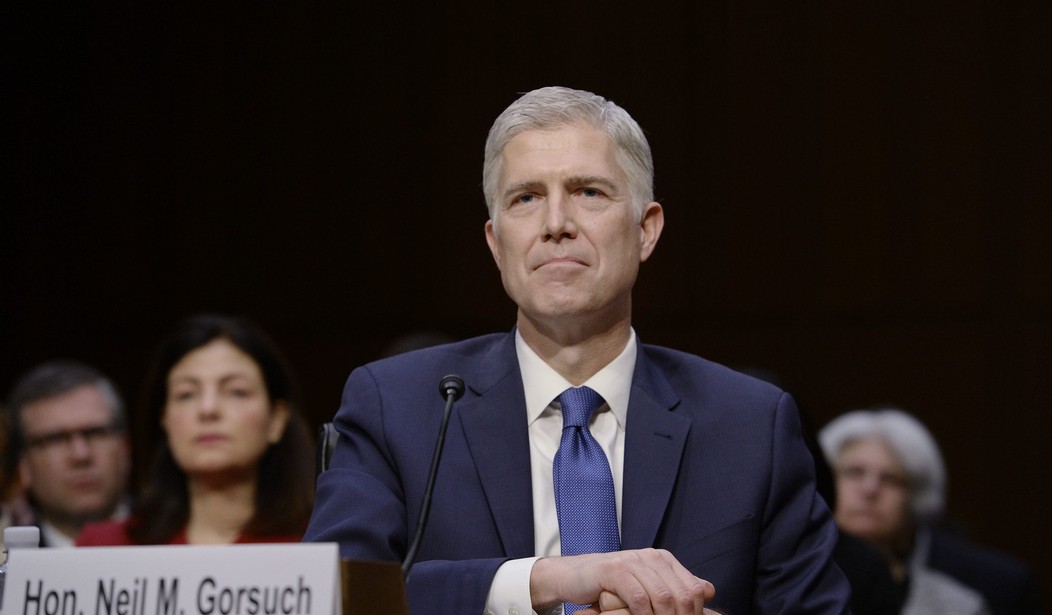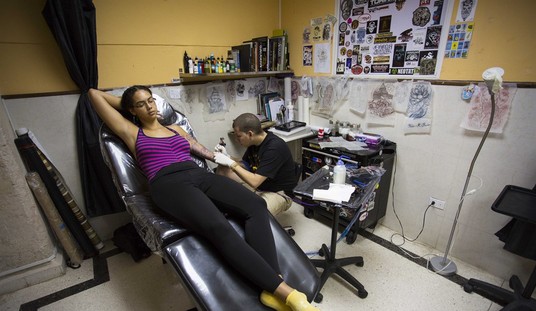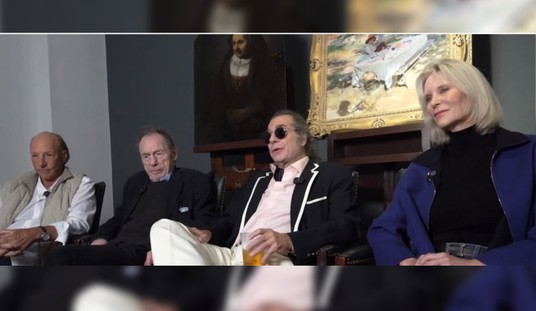On Tuesday night, Politico and BuzzFeed released two reports suggesting President Trump’s Supreme Court nominee, Neil Gorsuch, had committed plagiarism. Interestingly, one of the professors who condemned Gorsuch’s writing for plagiarism once sexualized the practice, going so far as to compare plagiarism to rape.
The Politico article quoted Rebecca Moore Howard, a writing and rhetoric professor at Syracuse University, who accused Gorsuch of “patchwriting” — which the Citation Project defines as “restating a phrase, clause, or one or more sentences while staying close to the language or syntax of the source.” The professor said Gorsuch also “hides his sources, which gives the appearance of a very deliberate method. I would certainly call it plagiarism.”
To Howard, this is an exceedingly serious charge. In a March 2000 article she wrote in the journal College English, the professor argued that plagiarism is sexual and violative — and therefore constitutes a type of rape. Here’s a sample:
But the discourse of plagiarism regulates not only textuality but sexuality. Embedded in the discursive construction of plagiarism are metaphors of gender, weakness, collaboration, disease, adultery, rape, and property that communicate a fear of violating sexual as well as textual boundaries. To regulate textual relations— and specifically the generalized field of plagiarism—is to regulate the gendered, sexualized body. Hence plagiarism continues to elude definition, for teachers cannot possibly formulate and act on a definition of plagiarism that articulates both its textual and sexual work.
Because plagiarism is a type of literary rape, it is hard to define. Discussing the concept of a poet’s muse as sexual inspiration, Howard argued that there is an inherent sexual meaning in plagiarism. “Thus the regulation of textual relations mirrors and participates in the regulation of sexual relations,” she wrote. “To plagiarize is to violate the sexual territory and property of another: Plagiarism amounts to one man’s raping another man’s female property.”
Interestingly, Howard’s article ends with a call to “get out of the business of valorizing an elusive originality, criminalizing imitation, and reinforcing prejudices of gender and sexual preference.” She declared, “let’s quit using the term plagiarism altogether,” in an attempt to “leave sexual work out of our textual work.”
Oh, and by the way, she’s a member of the Green Party who voted for Barack Obama in 2008. But that’s probably no surprise, for an academic who compared plagiarism to sexual violation of women.
just back from the polls: that's 2 more votes for Obama
— Rebecca Moore Howard (@rmhoward) November 4, 2008
So, the woman who called on academics to reject the very word “plagiarism” is now emphatically using that word to attack Neil Gorsuch, for the sin of “patchwriting.”
Gorsuch’s crime is rather simple to explain. In his 2009 book The Future of Assisted Suicide and Euthenasia, Gorsuch mimicked, nearly verbatim, a passage in the Summer 1984 edition of the Indiana Law Journal, from the article “The Legislative Response to Infant Doe” by Abigail Lawlis Kuzma.
Gorsuch’s book paraphrased Kuzma’s article without attribution. His book cited the same sources she cited, and provided nearly verbatim descriptions of medical conditions.
For instance, the Politico article set forth two specific sentences defining esophageal atresia:
Kuzma stated that “Esophageal atresia with tracheoesophageal fistula indicates that the esophageal passage from the mouth to the stomach ends in a pouch, with an abnormal connection between the trachea and the esophagus.”
Gorsuch wrote that “Esophageal atresia with tracheoesophageal fistula means that the esophageal passage from the mouth to the stomach ends in a pouch, with an abnormal connection between the trachea and the esophagus.”
This is just a sample of Gorsuch’s apparent paraphrasing. The passage is much longer, but it is not necessary to reproduce it all here.
Politico reports on documents showing that SCOTUS nominee Neil Gorsuch plagiarized the work of others. Behold: https://t.co/XQnCmd62Ia pic.twitter.com/ooc2TkG2bA
— Christina Wilkie (@christinawilkie) April 5, 2017
But Kuzma herself, the author whose originality (and thereby sexuality?) was allegedly violated, found no problem with this.
I have reviewed both passages and do not see an issue here, even though the language is similar. These passages are factual, not analytical in nature, framing both the technical legal and medical circumstances of the “Baby/Infant Doe” case that occurred in 1982. Given that these passages both describe the basic facts of the case, it would have been awkward and difficult for Judge Gorsuch to have used different language.
If Kuzma did not see this “patchwriting” as plagiarism, why did Howard? The mystery became even more perplexing when The Daily Caller revealed that the Citation Project, where Howard herself is a principal researcher, does not define “patchwriting” as plagiarism!
In fact, the Citation Project’s definition of plagiarism explicitly differentiates between it and “patchwriting.”
Researchers involved in the Citation Project have also developed a definition of “patchwriting” that draws on Howard’s 1993 definition, but goes beyond it to reflect what happens in one of the most common source-use errors. Patchwriting is not “theft” and therefore not plagiarism. When we separate acts of plagiarism from misuse of sources such as patchwriting, we can develop appropriate sanctions for the former and teach students to avoid the latter.
Perhaps Howard was not referring to the “patchwriting” when she accused Gorsuch of plagiarism. But she certainly seems to have accused him of rape, in her own twisted understanding of academic standards.
While sources like Howard agreed that Gorsuch was guilty of plagiarism, White House spokesman Steven Cheung shot down this idea. “This false attack has been strongly refuted by highly-regarded academic experts, including those who reviewed, professionally examined, and edited Judge Gorsuch’s scholarly writings, and even the author of the main piece cited in the false attack,” Cheung declared.
“There is only one explanation for this baseless, last-second smear of Judge Gorsuch: those deperate to justify the unprecedented filibuster of a well-qualified and mainstream nominee to the Supreme Court,” he concluded. The White House included statements from more than six scholars who have worked with Gorsuch or helped oversee the dissertation he wrote at Oxford University that was later turned into the 2009 book.
One of those “highly-regarded academic experts” was Robert George of Princeton University, the general editor for Gorsuch’s book publisher. “Judge Gorsuch did not attempt to steal other people’s intellectual property or pass off ideas or arguments taken from other writers as his own,” George said. “In no case did he seek credit for insights or analysis that had been purloined. In short, not only is there no fire, there isn’t even any smoke.”
Much in this debate hinges on whether “patchwriting” is plagiarism, which the Citation Project said it is not. Americans must decide whether they stand with the Citation Project, Robert George, and Kuzma, the author whom Gorsuch allegedly plagiarized — or with Howard, a woman who compared plagiarism to rape.
Is this attack a last-ditch attempt to defame Trump’s Supreme Court nominee, or is Gorsuch really a textual rapist? One explanation seems more plausible than the other.








Join the conversation as a VIP Member